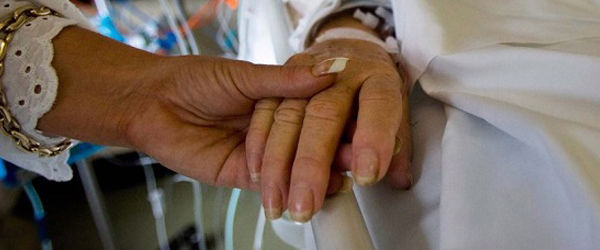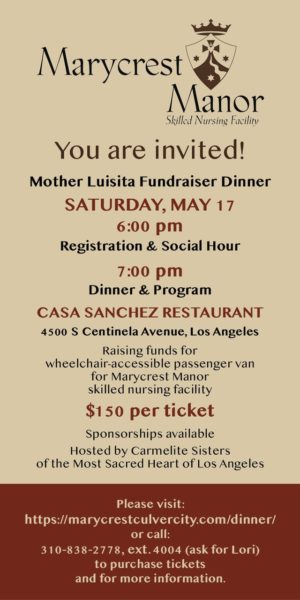But time heals and occasionally makes us wiser. Now, on Mother’s Day, I'm always conscious of my own mother and find good reasons to celebrate. You don't have to be alive to nurture someone, and such is the case with my mother. Jesus told us that we receive someone’s spirit more purely after they have left us and I know that's true. Forty years after her death, I am more conscious of who my mother was and what she gave me than I was during all the years of my childhood when she was alive and her motherhood embraced me tangibly. What my siblings and I are now conscious of, more clearly than when she was alive, is that we drew a long straw. We had a good mother. It's as simple as that. In everything that was essential, she gave us what's important: security, protection, a sense of being wanted, a sense of being precious, adequate food, adequate clothing, the underlying sense that life is good, and, most of all, the sense that we are in the hands always of a God who is trustworthy. None of this, of course, came perfectly. My mother wasn't God. She had real limits and so did the energy and the resources she drew upon to nurture us. We were a large family and were chronically strapped economically. We had enough, but just, just enough. There were never any extras.
My mother believed something most of us don't, namely, that when you are with the Bread of Life you always have the resources you need, no matter how meager they appear.
That was also true for the attention and the affection she could give out to us individually. She didn't have the time, energy or luxury to dote on any of us individually, even as none of us ever doubted that we were getting as much from her as if each of us had been an only child. But still, all of us felt her limits and live with the effects of that today. But her chronic over-extension was also her special gift: Like Jesus she multiplied the loaves and the fishes. Somehow she always found enough of everything, food, clothing, educational supplies, an extra cake or ribbon or whatever for a special occasion. Somehow we always had what we needed, just as somehow she made our family table stretch enough to feed anyone --- neighbor, teacher, priest, salesman or uncle-down-on-his luck --- who happened to be around near mealtime. She believed something most of us don't, namely, that when you are with the Bread of Life you always have the resources you need, no matter how meager they appear. She trusted that there would always be enough, and there always was. And she complemented my father perfectly. You couldn't have ordered a better marriage from either Hollywood or a Catholic dating service. They found each other, soulmates, at a parish picnic and their affection and respect for each other was what, perhaps more than anything else, gave us, their children, an inchoate sense of safety, stability and faith. My father was the moral compass, she was the heart; but they could reverse those roles and she could offer the moral challenge while he provided the sensitivity. Either way, they did it together. And by the time they died, leaving behind a family that felt too young to be on its own, they had given us what they needed to, all the basic tools to build our own lives and to live with some buoyancy and joy. She died of pancreatitis and a broken heart, just three months after she had nursed my dad through a year-long, losing, battle with cancer. As my dad lay dying, one of my brothers and I took her to a shop to buy a dress for the funeral. She splurged and bought the most expensive dress she'd ever purchased. When she tried on the dress the sales clerk told her: "You look terrific in that dress! I hope you enjoy wearing it!" She wore it just twice, once to her husband's funeral and once to her own. The irony of the salesclerk's comment hasn't been lost. For whatever reason, she disliked her name, Mathilda. Her woman friends shortened it to Tilly, which she disliked even more. I'm not sure what my dad called her in the privacy of their intimacy, but I suspect it wasn't either of those names. Anthropologists tell us that our mothers are our symbiotic link to life. They have to let us know that the universe wants us, that we're loveable simply for whom we are, that love doesn't have to be earned. My mother was too busy sometimes to nurture each of her children individually with that sense that we were unique, beautiful and precious; but she mothered us in such a way that life itself and the God who grounds life give us that precious gift. Oblate of Mary Immaculate Father Ronald Rolheiser is a specialist in the field of spirituality and systematic theology. His website is www.ronrolheiser.com.

